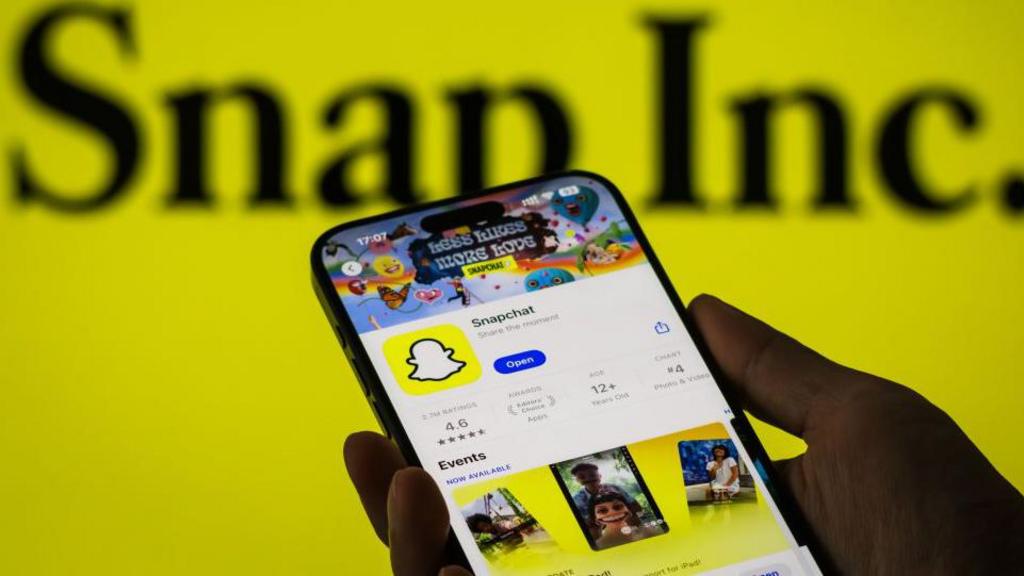“`html
“Half of my life is on this app, and now they expect us to pay for it,” lamented one user.
One-star reviews and widespread discontent have erupted online following Snapchat’s decision to impose charges for a service previously offered without cost, marking the messaging app as the latest tech company to monetize previously free features.
Snap, the parent company, announced in September that users exceeding five gigabytes of stored “Memories” – previously shared images and videos – would face charges.
These “Memories” often serve as nostalgic reminders for users, leading to accusations of “corporate greed” across social media platforms and in negative reviews on app stores.
Snap has drawn comparisons between its paid storage plans and similar offerings from tech giants like Apple and Google for smartphone users.
As an alternative, users can download their Memories, some spanning tens of gigabytes, directly to their devices.
The company stated to the BBC that only a small fraction of its user base would be affected by the change.
Snap acknowledged the difficulty of “transitioning from receiving a service for free to paying for it,” but suggested the cost would be “worth it” for its users.
However, online criticism suggests many disagree.
An online petition has labeled the fee a “memory tax,” with commenters decrying it as “dystopian” and “ridiculous,” while one user threatened to abandon the app altogether.
In a one-star review on the Google Play store, a user named Natacha Jonsson described the move as “very unethical.”
“If I know millennials right, most of us have years worth of memories on Snapchat,” she wrote.
“And most of us only kept the app mainly for that reason.”
“5GB is absolutely nothing when you have years worth of memories… Bye Snap.”
Guste Ven, a 20-year-old journalism student in London, shared her plans to delete the app on TikTok.
“I decided that I needed to download all my memories as soon as I could,” she told BBC News.
“Almost all of my teenage years have been documented through my Snapchat memories; all of the photos in there are really important to me.”
“It just doesn’t make sense to start charging people for something that has been free for so many years.”
Snapchat has not yet disclosed the pricing for storage plans in the UK, stating only that they are part of a “gradual global rollout.”
However, 23-year-old Amber Daley, also residing in London, expressed her distress over the potential charges in a TikTok post.
Amber told the BBC that Snapchat has become “a part of everyday life” since she began using it in 2014.
While acknowledging the platform’s need to generate revenue, Amber suggested the “Memories” feature holds deeper significance for users than the company may realize.
“I think it’s quite an unfair move to charge your customers who have been loyal and devoted,” she said.
“These aren’t just called Memories; these are our actual memories.”
The practice of companies charging for previously free services is not new, with millions already paying for cloud storage solutions like iCloud and Google Drive to back up their smartphone data.
The reality of cloud storage – often described as “somebody else’s computer” – is that it incurs costs.
“Hosting trillions of Memories on Snapchat isn’t a trivial amount,” social media consultant Matt Navarra told the BBC.
“Snapchat has to try to find a way to cover the cost of storage, bandwidth, back-ups, content delivery, encryption – all that stuff.”
However, Mr. Navarra noted that introducing fees for a service that was previously free and users were encouraged to utilize may feel like a “bait and switch” for some.
“Moving the goalposts after people have built this huge digital archive doesn’t really sit right,” he said.
And for many, he added, “Memories aren’t just data dumps, they’re emotional artefacts.”
This sentiment was echoed by reviewers, with one describing their Snapchat photos and videos as “the most precious thing to me.”
“[Memories] have every aspect of my life within them, from celebrations of new family members’ births, mourning of passed loved ones, memories with friends/family, [and] my whole teenage years,” they wrote.
Dr. Taylor Annabell, a postdoctoral researcher at Utrecht University in the Netherlands, stated that Snapchat’s decision highlights the implications of using commercial platforms to store sensitive personal content.
“They benefit from this trust, interdependence, and presumption of never-ending access, which even incentivises some users to remain with the platform or continue to use it in order to scroll back through their archive,” she told the BBC.
“But these are not benevolent guardians of personal memory.”
Sign up for our Tech Decoded newsletter to follow the world’s top tech stories and trends. Outside the UK? Sign up here.
It has not said how much the storage plans will cost UK users, only that they were part of a “gradual global rollout”.
The jobs most at risk include telemarketing, bookkeeping and data entry, according to research.
James O’Neill, 49, of Cluain Mor Drive, Belfast, will serve one year in prison after admitting to the sexual offences.
On a Warwickshire housing estate, a BBC journalist poses as a schoolgirl to meet the dealers.
The Australian government says the world-first ban is aimed at protecting youth from online harm.
“`

